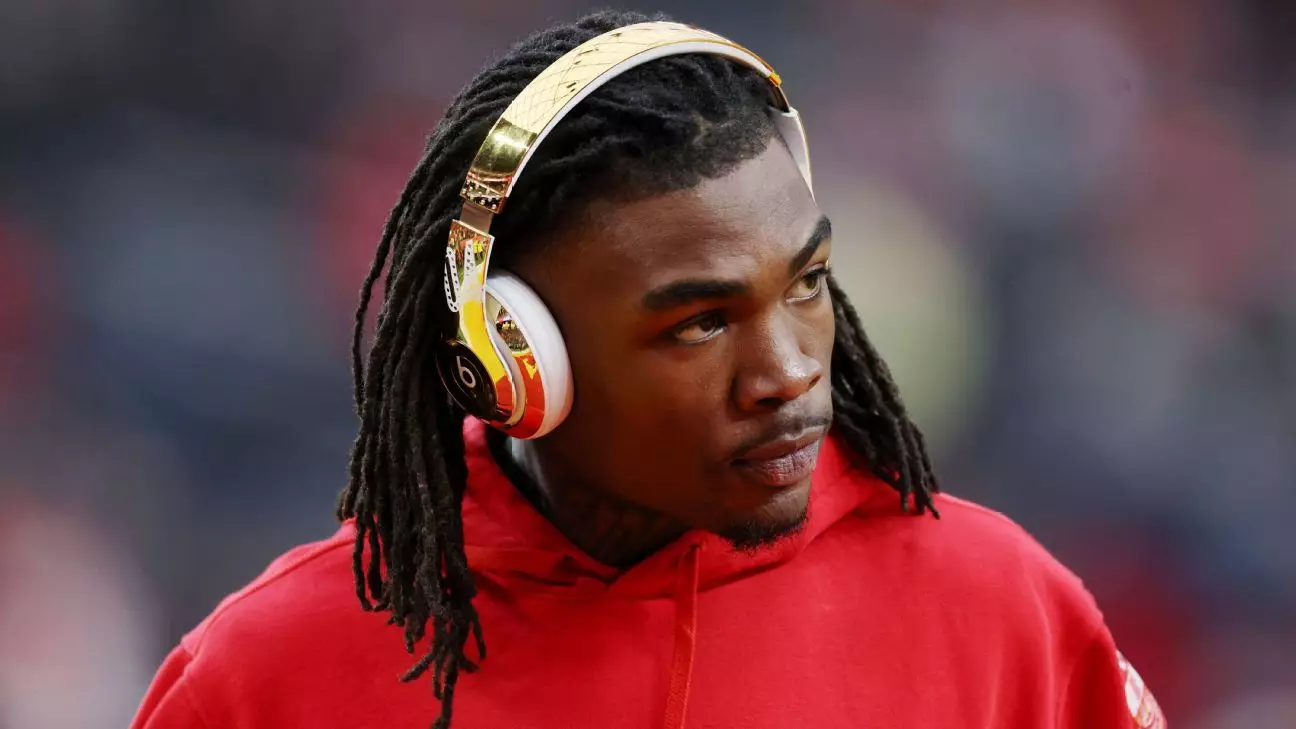In a world captivated by celebrity culture, the story of Rashee Rice exemplifies a disturbing phenomenon: the dangerous illusion that fame grants immunity from consequences. Despite his athletic prowess and public profile, Rice’s reckless decision to drive at nearly 120 mph, culminating in a severe multicar crash, exposes a mindset that equates status with invulnerability. This attitude, often reinforced by media narratives that romanticize risky behaviors among stars, fosters a dangerous environment where accountability is minimized until tragedy strikes. Society’s adulation of athletes and influencers sometimes blurs the critical distinction between admiration and endorsement of irresponsible conduct.
The Hidden Costs of Celebrity Privilege
Rice’s case underscores a troubling tendency among public figures to believe they are above typical standards of responsible behavior. Paying $115,000 in restitution and serving a brief jail stint may seem like sufficient punishment. Yet, this superficial resolution masks deeper issues: a pervasive entitlement that sneers at laws designed for ordinary citizens. This attitude threatens the fabric of societal responsibility—it sends the message that fame can dilute the moral weight of one’s actions. When young stars like Rice, who are idolized by millions, indulge in dangerous recklessness, it desensitizes society to accountability. The real injury extends beyond the immediate victims to the community at large, which must grapple with the peril of celebrating individuals who display a blatant disregard for safety.
The Flawed Justice System and Its Discontents
The legal response to Rice’s actions reveals a system that often seeks quick resolutions—deferred adjudication—aimed more at image management than moral awakening. While such measures might seem lenient or pragmatic, they risk fostering an environment where law enforcement and the judiciary are seen as accommodating celebrity misconduct. This perceived inequality strikes at the core of societal trust. The NFL’s imminent disciplinary action, likely a multi-game suspension, is merely a symbolic gesture—a drop in the bucket for a problem rooted in cultural values that privilege fame over responsibility. An effective system should prioritize genuine accountability, emphasizing rehabilitation over mere punishment, especially for individuals wielding considerable influence and public responsibility.
The Role of Society in Shaping Future Behavior
Beyond legal and institutional responses, it’s critical to question the societal narratives that enable such behavior to flourish. Whose responsibility is it to instill the importance of moderation and respect for safety? As a society, we have an obligation to challenge the normalization of reckless conduct among our young heroes. This entails fostering an environment where integrity and accountability are celebrated over sensationalism and risky bravado. If we continue to overlook the underlying culture that normalizes dangerous lifestyles within celebrity circles, we risk creating a cycle where tragedy becomes inevitable—repeating the same destructive narratives that glorify defiance rather than responsibility.
The Real Lessons andUrgent Need for Cultural Reflection
Rice’s story is not just about a single athlete’s misjudgment; it’s a reflection of broader societal flaws that equate fame with exemption from moral standards. We should mourn less over the legal labels and more over the deeper implications: a cultural landscape that permits privileged individuals to skate by when they make life-threatening choices. True change requires confronting uncomfortable truths—the normalization of risky behavior, the superficiality of quick legal fixes, and the misguided adulation that emboldens fleeting fame over meaningful accountability. Until society collectively redefines its values, stories like Rice’s will remain grim reminders of how fragile the line is between celebrity admiration and responsible citizenship.


Leave a Reply